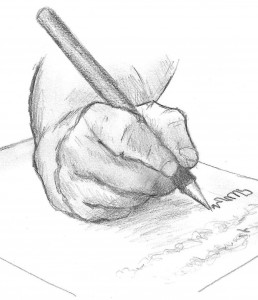Writable Novel Notes
 Cribbed and slightly expanded from a 2013 blog post, where it got lost in the middle. But as I start looking over my notes for a sixth Jack Commer novel, all this rumination applies anew!
Cribbed and slightly expanded from a 2013 blog post, where it got lost in the middle. But as I start looking over my notes for a sixth Jack Commer novel, all this rumination applies anew!
Notes for a novel have to be writable. There has to be a concrete situation, there have to be concrete characters and a concrete stage for them to act upon. I often start novels by collecting miscellaneous notes I’ve accumulated over “the past psychologically meaningful unit of time.” Then I sort them, whacking them down and resorting as further ideas come into play, and toss in essays, journal entries, and recent dreams. Sometimes this process sparks imaginative leaps that produce writable scenarios. But maddeningly, this method seems to fail at least half the time, and frequently leaves me with the delusion that I now have notes for a new novel, when in reality I just have a bunch of semi-interesting ideas which don’t have novel legs.
“Writable” implies a high level of desire to get on with the actual composition of the novel. If I don’t feel an immediate urge to jump onto the book, my notes are probably vague obligations about stuff I think I ought to write.
But at least I’ve become more aware of the pitfall of such abstract notes. By the time I’m deep into a novel I usually distrust the notes for the future chapters, and if I’m writing well, I immediately see which notes are workable and which are just fluff I’ve been attached to for some reason. Again and again I’m forcefully reminded that characters and their motivations move the story and invite eager writing. Ideas by themselves do not.
I’ve also noticed a semi-amusing tendency for my notes for a Part I to be ninety percent writable to ten percent abstract ideas, and notes for the final Part V to be ten percent writable to ninety percent abstract ideas. Notes for chapter 1: “Harold rides a nuclear-powered motorcycle across the Mercurian desert, vowing revenge against the aliens who attacked his solar panel farm.” Notes for chapter 40: “Warring factions of all planets come together.”
I’m not alone here. I could cite several recent long science fiction novels that began brilliantly but wound up lost in bloated abstraction, even as the author kept straining to render his or her ideas into “novel plot” and “novel dialog.”
from “Perpetual Starlit Night in Twisted Tails VII,” which discusses how my short story “Perpetual Starlit Night” originally aimed to be a long, unwritable novel.
Copyright 2014 by Michael D. Smith

I also find that when I take the time to write things down during my writing process – be it a character I want to introduce or a mini storyboard of how characters get from A to B – the ideas are better and actually make it into what I’m writing. Perhaps it’s just the tangible act of putting it to paper that helps take it out of the grey matter and helps me focus.
It’s definitely been a disaster when I just wade into a novel without having the slightest idea of a framework. I just meander forever, and somehow never get to know the characters, either. Having some sort of rational storyboard makes the whole thing fun to write and gives the characters a theater stage upon which to develop. I like the concept of storyboard because it implies the ability to shift your boards around as you go. The ideas that you start with are never as exciting as the ideas that begin to come up as you get into the actual composition.